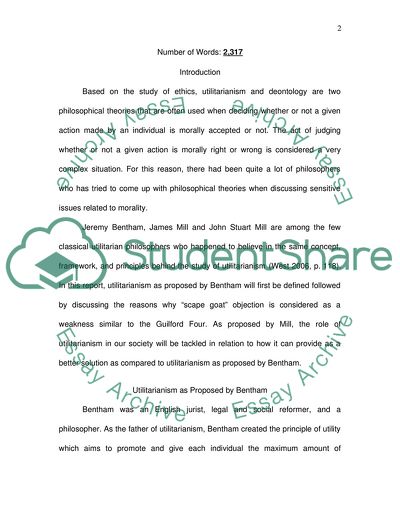Cite this document
(Consideration of the Weaknesses of Utilitarianism by Guildford Four Coursework, n.d.)
Consideration of the Weaknesses of Utilitarianism by Guildford Four Coursework. Retrieved from https://studentshare.org/law/1749617-ib-philosophy-coursework-how-does-the-case-of-the-guildford-four-illustrate-the-weaknesses-of-utilitarianism-especially-when-being-used-as-the-moral-guide-of-the-state
Consideration of the Weaknesses of Utilitarianism by Guildford Four Coursework. Retrieved from https://studentshare.org/law/1749617-ib-philosophy-coursework-how-does-the-case-of-the-guildford-four-illustrate-the-weaknesses-of-utilitarianism-especially-when-being-used-as-the-moral-guide-of-the-state
(Consideration of the Weaknesses of Utilitarianism by Guildford Four Coursework)
Consideration of the Weaknesses of Utilitarianism by Guildford Four Coursework. https://studentshare.org/law/1749617-ib-philosophy-coursework-how-does-the-case-of-the-guildford-four-illustrate-the-weaknesses-of-utilitarianism-especially-when-being-used-as-the-moral-guide-of-the-state.
Consideration of the Weaknesses of Utilitarianism by Guildford Four Coursework. https://studentshare.org/law/1749617-ib-philosophy-coursework-how-does-the-case-of-the-guildford-four-illustrate-the-weaknesses-of-utilitarianism-especially-when-being-used-as-the-moral-guide-of-the-state.
“Consideration of the Weaknesses of Utilitarianism by Guildford Four Coursework”, n.d. https://studentshare.org/law/1749617-ib-philosophy-coursework-how-does-the-case-of-the-guildford-four-illustrate-the-weaknesses-of-utilitarianism-especially-when-being-used-as-the-moral-guide-of-the-state.


